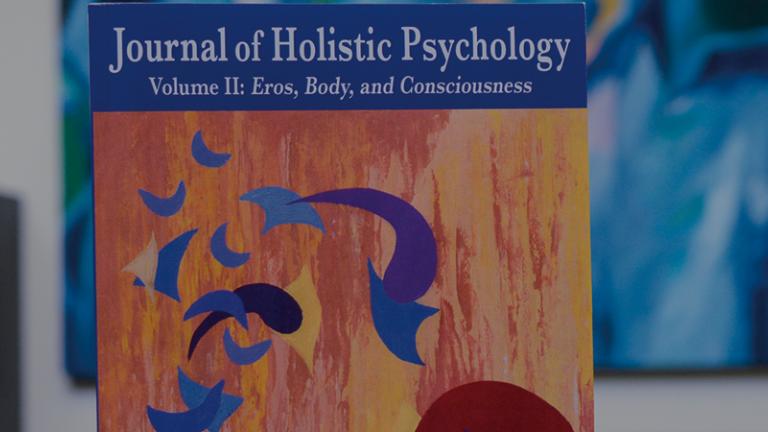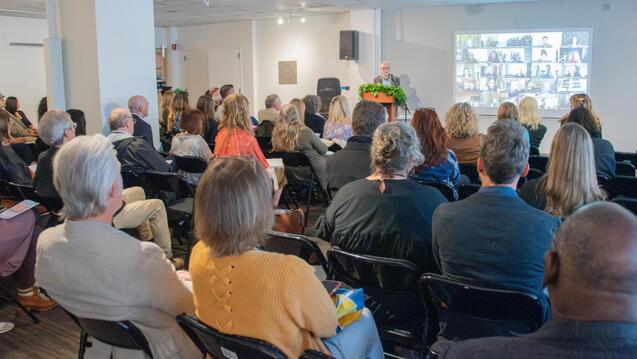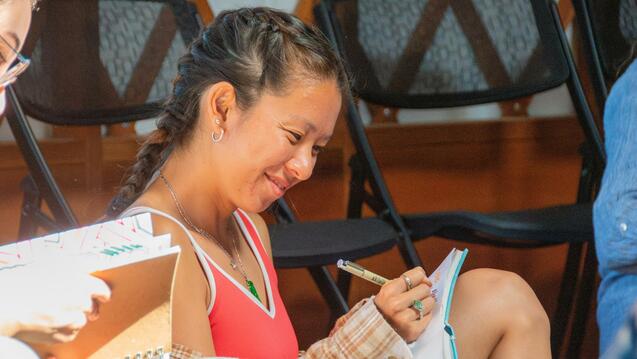Over 370 participants gathered at CIIS to honor Jung’s 150th birthday in a transformative exploration of psyche, purpose, and collective healing.

Journal of Holistic Psychology on Psychological Splitting
Holistic psychology, to us, is not only spiritual but also scientific.
Too often in this day and age, opinions posing as fact. Not that there's anything wrong with opinions-how skillfully (or not) we present them builds character and define our personalities, or perhaps our quirks.
It is essential, though, to remember that at the core of opinion is a preference, and if we don't have the self-esteem to stand by our choices as just that, a choice, then we might succumb to the tack of making declarations so as to deflect challenge, to avoid debate. One does not have to reach too far into one's own mental archive to find an example of such a declaration from the ranks of politics, media, or entertainment.
Our preferences for this or that, for one thing, or another, a Democrat or a Republican, a Pepsi or a Coke, help us bond with like-minded friends as well as identify adversaries. And so we position our opinions as known facts so as to seek solace in a real or imagined collective, to find a place to call home, plainly situated across from the opposition. At its most benign it is sports-minded thinking, us versus them; at its most dangerous, it is jihad, genocide, and war.
With the 2016 U.S. presidential election approaching, the Journal of Holistic Psychology (the Journal) has begun thinking about how opinion and fact will factor in as the divisions along political lines grow. In psychological terms, this divide is known as splitting, defined by black-and-white thinking, absolutism, fear, good versus evil, distortions, fanaticism, and zealotry within an individual's psyche.
Finding A Middle Ground
One goal of psychotherapy is to heal this divide, to help people find a middle ground, the kernel of truth in every side of a story, interpretation of an event or statement, or belief system. When such splitting occurs in society, as it tends to during an election cycle, challenging this type of unhealthy thinking becomes complex, as the top-down modeling from individuals in the spotlight supports the bifurcation. The game becomes about convincing others that one holds not a truth but the truth.
Craig Chalquist, the Journal's executive editor and the East-West Psychology Department Chair, believes that the answer lies in the exploration of the holistic approach in the truest sense of the term. "CIIS and the Journal of Holistic Psychology are collaborating on the theme of politics for the next issue because holistic perspectives can investigate and, perhaps, begin to heal the splitting and fragmentation-the lack of wholeness- that characterizes the 'hard' reality of politics in our day," says Chalquist. "The word 'politics' comes from a word for 'flow,' and yet in our time has congealed into stuckness and immobility. Where we should expect wisdom, discernment, and leadership we see unprecedented division, malfeasance, and outright folly. Why is this?"
When we're children, the difference between opinion and fact can be fuzzy. At a young age, to dislike a thing--whether peas, skim milk, or the classical music station one's parents listen to in the car--might be to assume it is a fact that particular thing is terrible, and the person eating, drinking, or listening to it is simply uninformed or has bad taste. I blamed age for my parents' poor taste in food and music. What did they know about cool things? They were adults.
We have become polarized, as is evidenced in everyday thinking. At the time of this writing, a viral social media meme is circulating that challenges viewers to see a photo of a dress as either black and blue or gold and white- apparently depending on one's proclivity to visually process certain colors. Many of us say, "Who cares what color the dress is?" Yet in this mass debate, which has captured the attention of millions of people around the world, lies the heart of the matter-we seems to be living for the opportunity to both oppose and join, simultaneously, tirelessly seeking our place within the side upon which we can stand behind the line with our like-minded peers, hurling eggs at the rival.
Author and cartoonist Dr. Seuss captured dualistic thinking well during the Cold War with his antiwar offering The Butter Battle Book (1984), which famously presents the Yooks and Zooks, characters who both love buttered bread but disagree as to which side the bread should be buttered on-an argument that leads to all-out... we won't give away the ending.
The Journal believes that the term "holistic" is often misrepresented as a term of enlightenment that can be used to-you got it, polarize. Specifically regarding psychotherapy, a relatively young field in terms of healing arts and sciences, there have been many developmental phases and modalities, some of which live on the evidence-based, scientific side and others on the more experimental, experiential, and even spiritual side.
Holistic psychology, to us, is not only the latter but also the former. For to be truly holistic, one must consider all sides--a dialectic in search of many opposing, yet equally valid, truths. With our next volume, the political issue, we will explore, for example, how splitting occurs in the psyche during an election term, and we'll offer insight into the endorphin rush that research shows we experience when our side wins. Volume III will be available in print in the summer of 2016.
Related Academic Programs
Related News
Your roadmap to becoming a licensed clinical psychologist through CIIS' integral, holistic approach to doctoral training and professional practice.
Discover your fit among CIIS' five counseling psychology concentrations, each offering a unique path to becoming a transformative healer.



